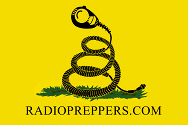when I was working in Kuching, Sarawak, Malaysia , I picked-up a locally published book; "SAS In Malaya" and, like you said, Gil - the jungle warfare people did amazing things. They Malay campaign drove the development of a far better radio; the PRC-316 and STRONG reliance on NVIS. Here is a link to an interesting article from your mates at VMARS, describing it's use.
http://www.vmarsmanuals.co.uk/newsletter_articles/prc316.pdf
>RadioRay ..._ ._
http://www.vmarsmanuals.co.uk/newsletter_articles/prc316.pdf
>RadioRay ..._ ._
